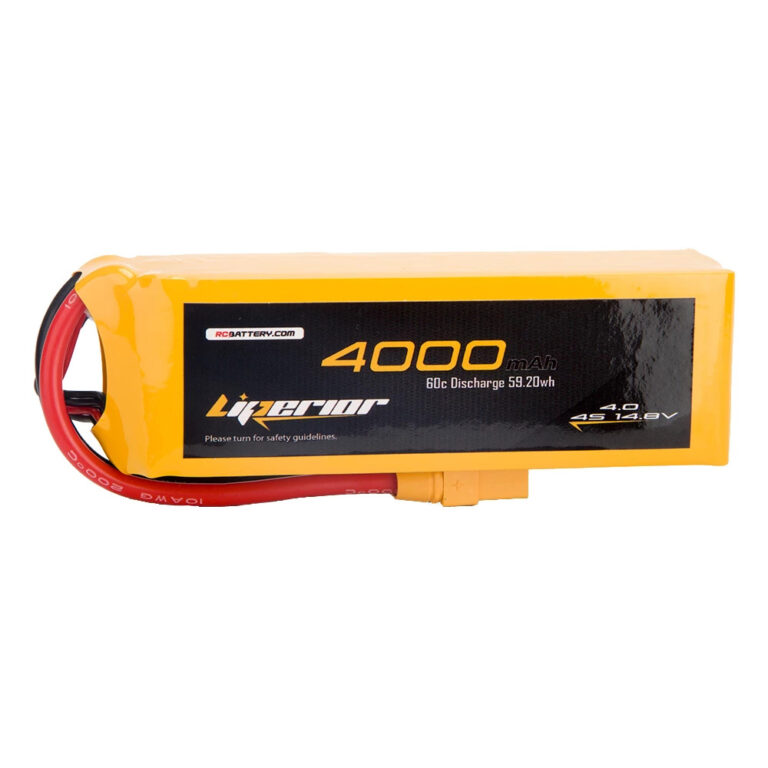In today’s world of portable electronics, RC hobbies, and electric vehicles, choosing the right power source is crucial. LiPo batteries have emerged as a popular choice due to their high energy density and lightweight design. Whether you’re a hobbyist or a professional, understanding how to select the best LiPo battery can significantly impact your project’s performance and longevity.
Introduction
What are LiPo batteries?
LiPo (Lithium Polymer) batteries are a type of rechargeable battery known for their high energy density and lightweight nature. They are widely used in various applications, from consumer electronics to aerospace.
Importance of choosing the right LiPo battery
Selecting the correct LiPo battery is crucial as it directly impacts the performance, safety, and lifespan of your devices or projects.
Section 1: Understanding LiPo Batteries
Chemistry and composition of LiPo batteries
LiPo batteries use a unique chemistry that allows for a higher energy density compared to traditional batteries. This makes them lighter and more compact, ideal for applications where weight is a critical factor.
Advantages of LiPo batteries over other types
LiPo batteries offer several advantages such as higher discharge rates, longer cycle life, and better performance in cold temperatures compared to NiMH or lead-acid batteries.
Section 2: Factors to Consider Before Choosing a LiPo Battery
Voltage and capacity ratings
Choosing the right voltage and capacity ensures compatibility and adequate power supply for your device.
Size and weight considerations
LiPo batteries come in various sizes and weights. Consider these factors based on your device’s dimensions and weight limitations.
Discharge rate and current handling
Higher discharge rates are essential for applications requiring bursts of power, like RC vehicles or drones. Ensure the battery can handle the current demands of your project.
Cycle life and durability
LiPo batteries vary in their durability and number of charge cycles they can endure. Understanding this helps in estimating battery lifespan and replacement intervals.
Section 3: Applications of LiPo Batteries
LiPo batteries find extensive use in:
- Consumer electronics: Powering smartphones, tablets, and laptops due to their compact size.
- RC hobbies: Providing high power output and lightweight design for RC cars, boats, and planes.
- Electric vehicles: Supporting the electric revolution with their energy density and quick recharge capabilities.
- Aerospace and drones: Enabling longer flight times and high maneuverability in aerial vehicles.
Section 4: Types of LiPo Batteries
Single-cell vs. multi-cell configurations
Single-cell LiPo batteries are simpler and lighter, while multi-cell configurations offer higher voltages and capacities for more demanding applications.
High discharge vs. high capacity batteries
High discharge batteries are suitable for applications needing quick bursts of power, whereas high capacity batteries provide longer run times.
Section 5: Safety Considerations with LiPo Batteries
Risk of overcharging and over-discharging
Overcharging or over-discharging LiPo batteries can lead to damage or safety hazards. Use proper chargers and monitors to avoid these risks.
Storage and transportation safety tips
Store LiPo batteries in fireproof containers and avoid exposing them to extreme temperatures. Transport them safely to prevent physical damage.
Handling and disposal guidelines
Follow manufacturer guidelines for handling and disposing of LiPo batteries to minimize environmental impact and safety risks.
Section 6: Choosing the Right LiPo Battery for Your Project
Step-by-step guide to selecting a LiPo battery
Evaluate voltage, capacity, size, and discharge rates based on your project’s requirements.
Matching battery specifications to project requirements
Ensure the battery meets the voltage and current demands without compromising size and weight limitations.
Evaluating manufacturer specifications and reliability
Choose reputable brands with proven track records for reliability and safety.
Section 7: Performance Testing and Evaluation
Methods for testing battery performance
Conduct discharge tests, measure capacity, and monitor temperature changes during operation.
Interpreting test results
Understand how test data translates into real-world performance for your specific application.
Ensuring compatibility with charging equipment
Use chargers recommended by the battery manufacturer to maintain performance and safety standards.
Section 8: Maintaining LiPo Batteries
Best practices for extending battery life
Avoid deep discharges, store batteries at optimal voltages, and regularly inspect for physical damage.
Cleaning and storage recommendations
Keep batteries clean and store them in cool, dry environments to prevent degradation.
Section 9: Future Developments in LiPo Battery Technology
Trends in LiPo battery innovation
Research focuses on increasing energy density, improving safety features, and reducing charging times.
Impact of new technologies on performance and safety
Advancements in materials and manufacturing processes aim to enhance both performance metrics and user safety.
Conclusion
In conclusion, selecting the right LiPo battery involves understanding your project’s specific needs, evaluating technical specifications, and prioritizing safety. Whether you’re powering a drone for aerial photography or upgrading an electric RC car, the right battery choice can make all the difference in performance and longevity.
FAQs about LiPo Batteries
What does “LiPo” stand for?
LiPo stands for Lithium Polymer, referring to the battery’s unique chemistry combining lithium-ion technology with a polymer electrolyte.
How long do LiPo batteries last?
The lifespan of LiPo batteries varies based on usage and maintenance but typically ranges from 300 to 500 charge cycles.
Are LiPo batteries safe for use in drones?
Yes, LiPo batteries are commonly used in drones due to their high energy density and lightweight properties, but proper handling and charging practices are essential for safety.
Can LiPo batteries be charged with any charger?
No, LiPo batteries require specific chargers designed to safely manage their charging process and prevent overcharging.
How should I dispose of old or damaged LiPo batteries?
Follow local regulations and manufacturer guidelines for safe disposal, which may include recycling programs or hazardous waste collection centers.


